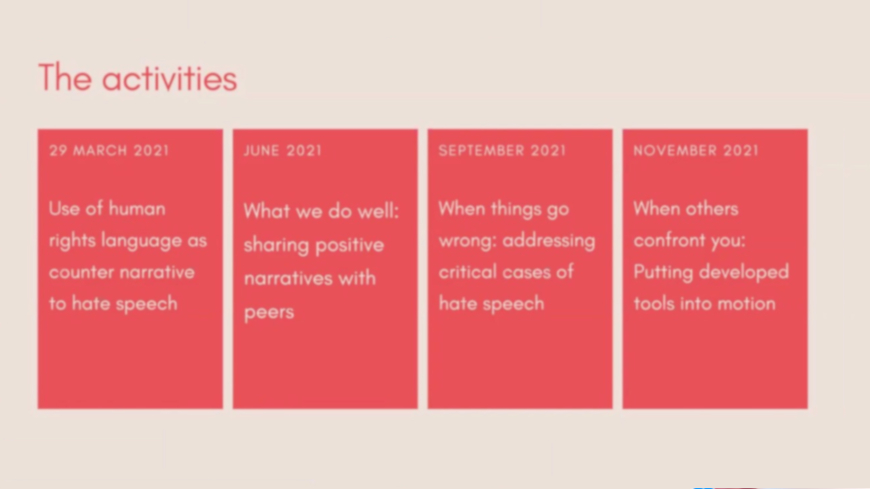Equality bodies need to make strong efforts in nowadays’ Europe to respond to hate speech in the framework of their mandate. This is particularly important considering the increased use of social media, forms and levels of hatred present on the social media, as well as in the public space.
The pandemic and new toxic narratives spreading stigma and manifesting discriminatory attitudes against vulnerable social groups, only adds to the problem. Equality bodies continuously struggle to provide a response that is balanced between limitations imposed by freedom of expression and protecting victims and potential victims of discrimination. To this end, the European Union and the Council of Europe, through their joint programmes, support them in their endeavour to increasingly use a human rights-based language in their public communication and their approach to combating hate speech.
The Council of Europe, in its joint efforts with the European Union in the Eastern and South Eastern European regions, has devised a capacity building programme to provide tools and peer to peer exchanges to better develop responses to hate speech, using the European standards and practices as reference, especially the ECRI General policy recommendation nr. 15 on combating hate speech. The first training session took place on 29 March, getting participants familiar with the topic of counternarratives and providing samples to reflect on. Over 40 participants from equality bodies from the Western Balkans and the Eastern Partnership region explored the communication approaches related to counter and alternative narratives to hate speech and developed ideas and plans for their own institution’s communication in the coming months.
This capacity building activity is developed within the joint programmes of the European Union and the Council of Europe, the Horizontal Facility for the Western Balkans and Turkey (HF) and the Partnership for Good Governance (PGG) and in particular the action “Promotion of diversity and equality in the Western Balkans” (HF) and the project “Strengthening access to justice through non-judicial redress mechanisms for victims of discrimination, hate speech and hate crimes in the Eastern Partnership” (PGG).




